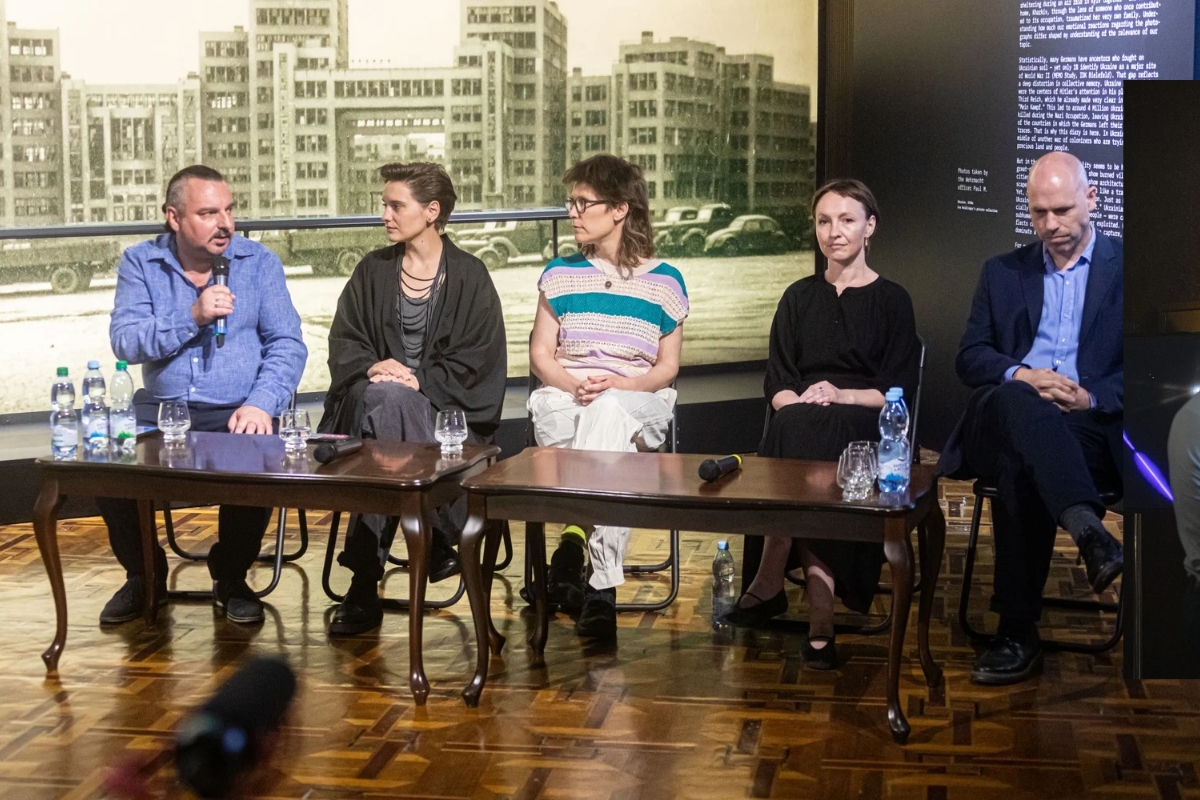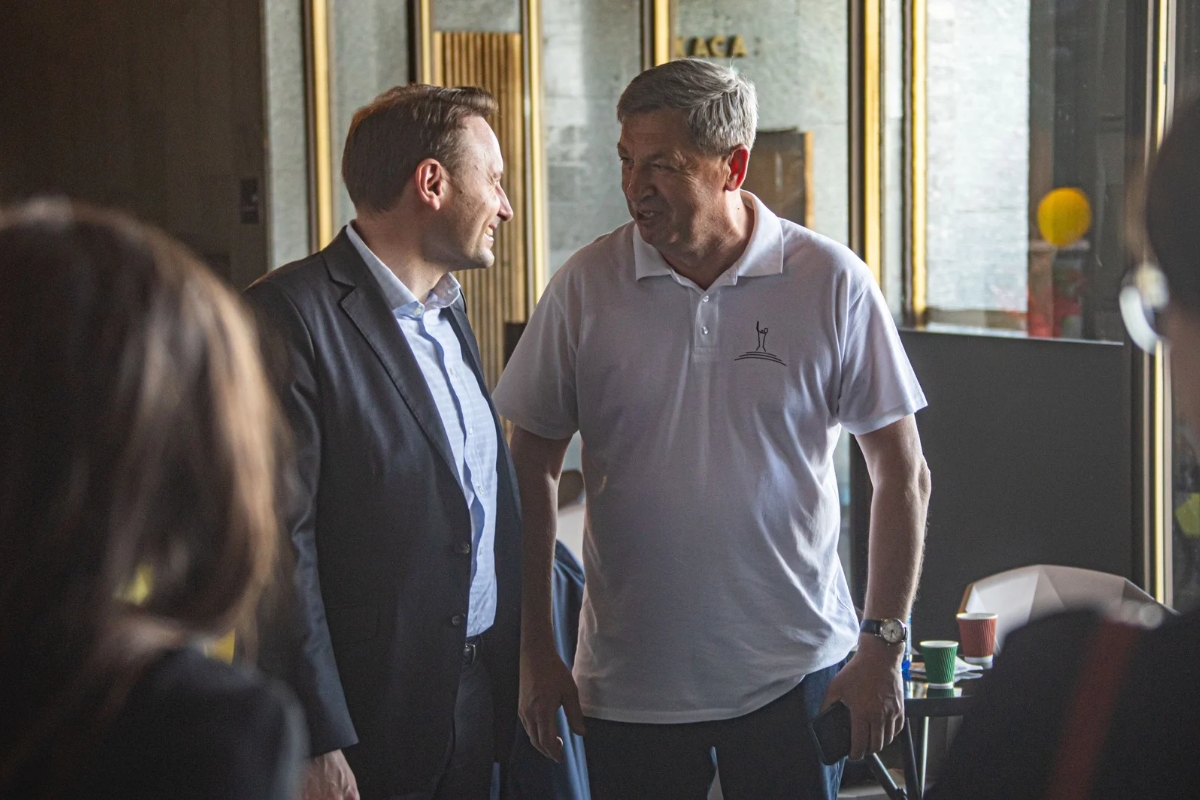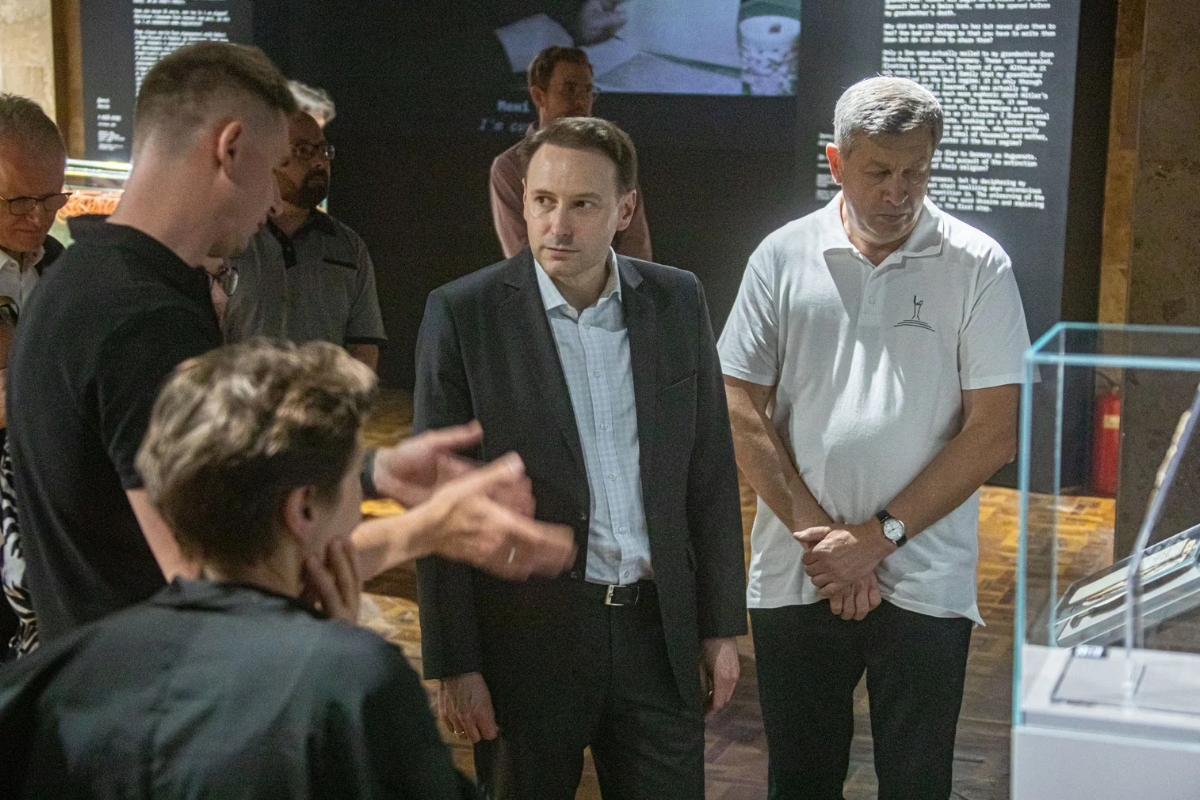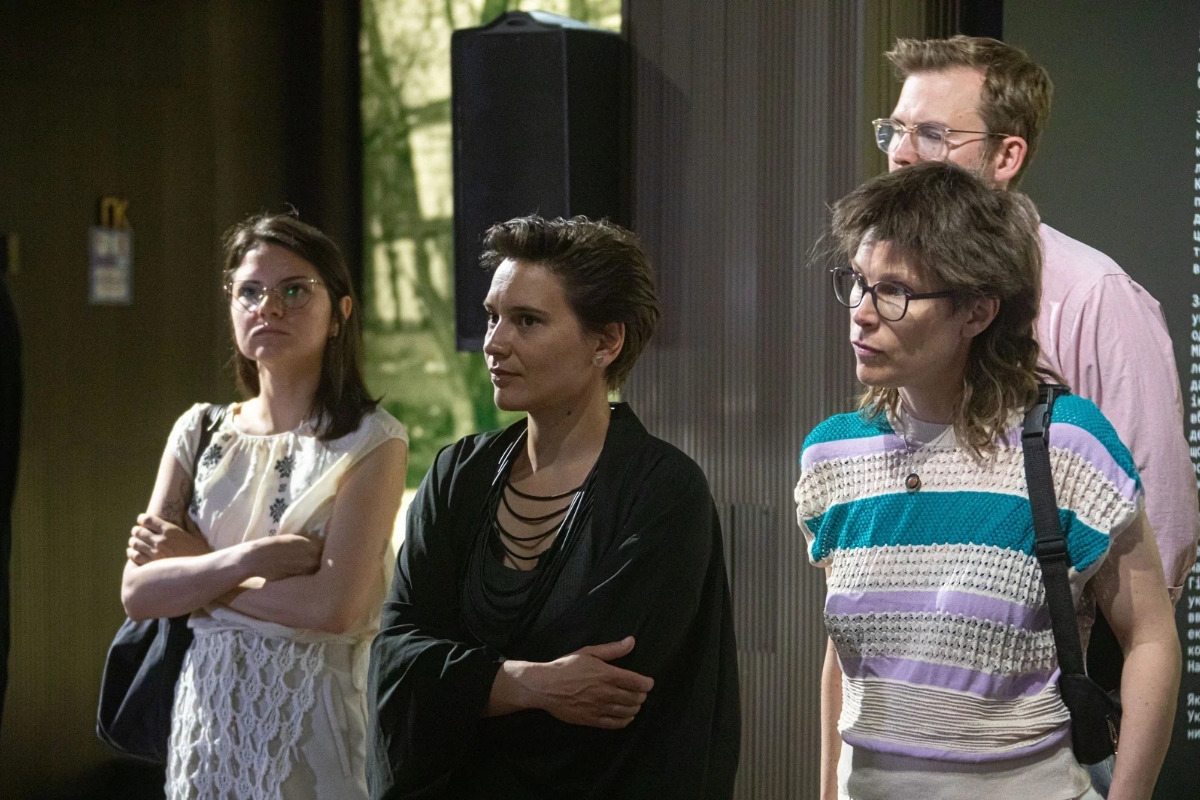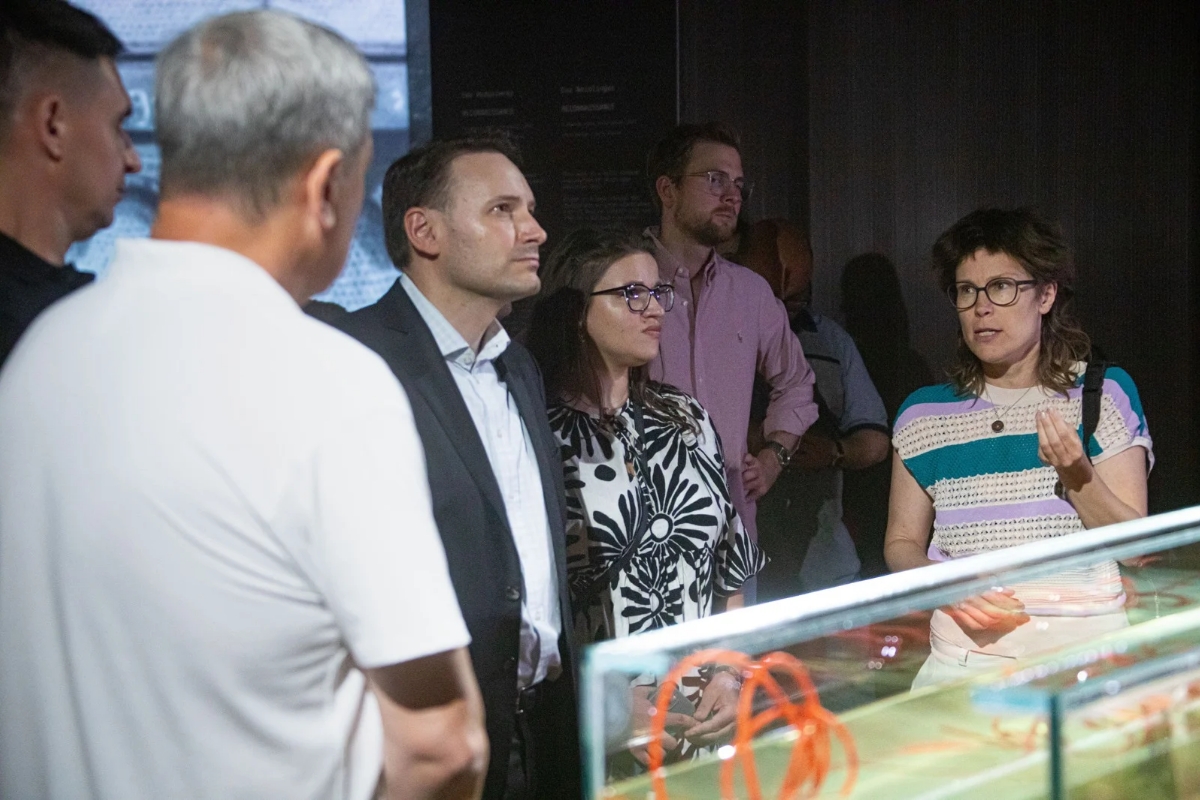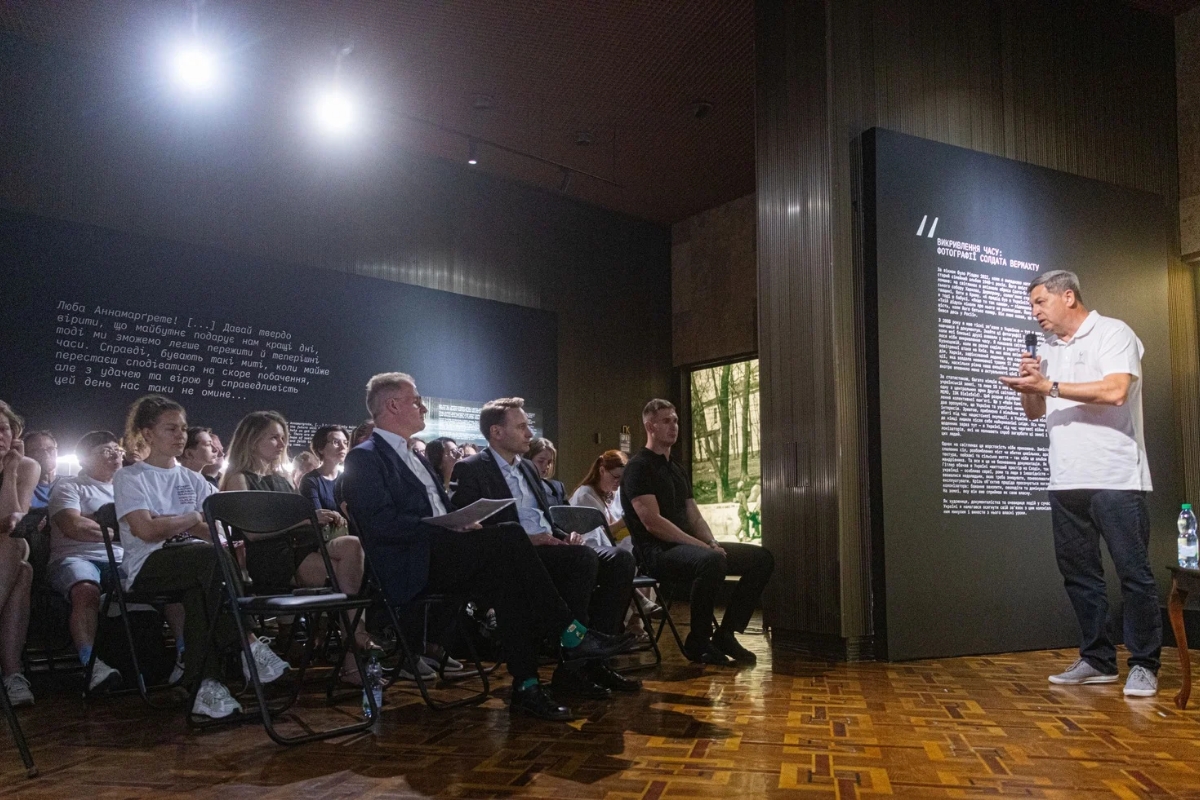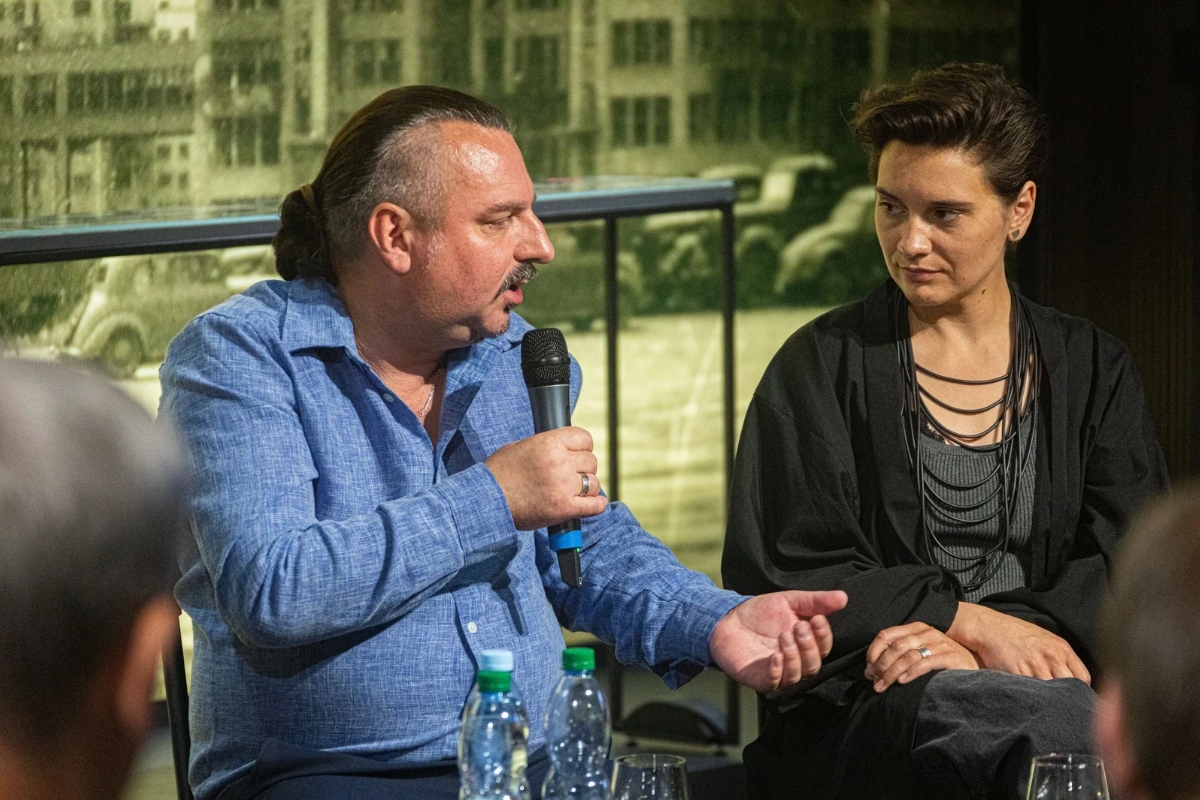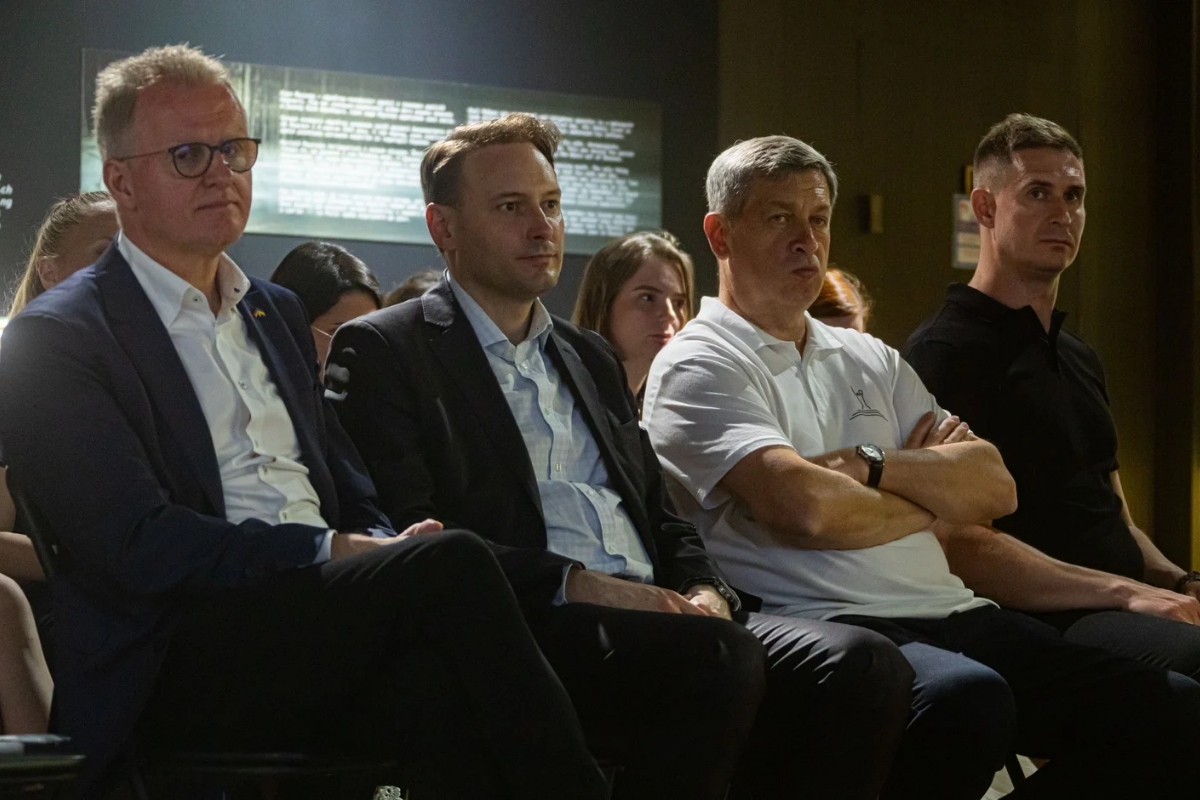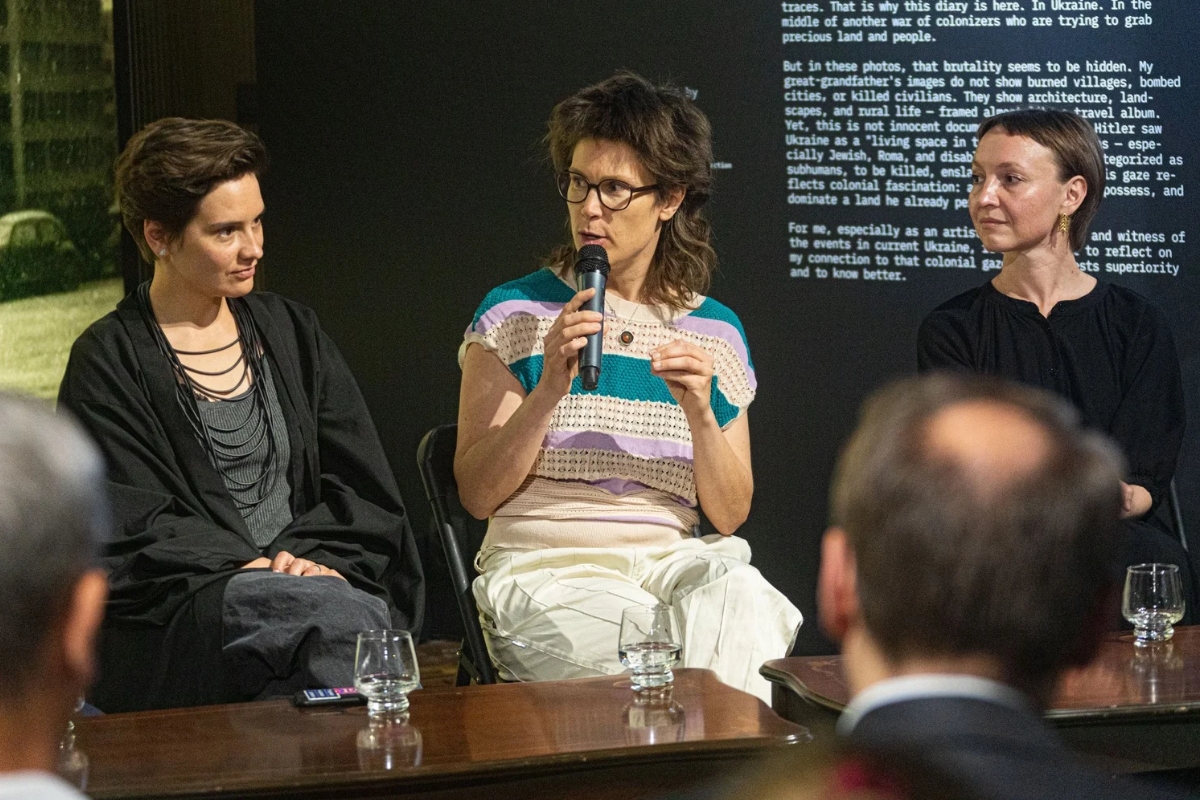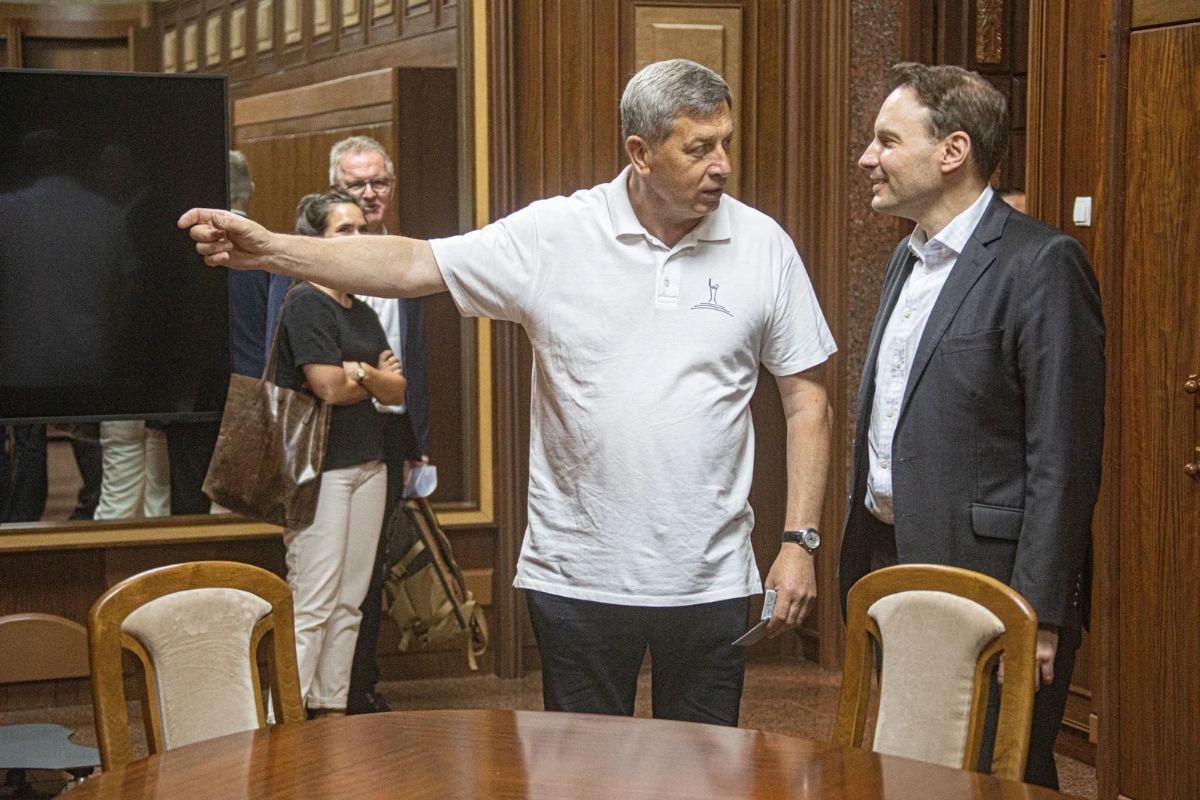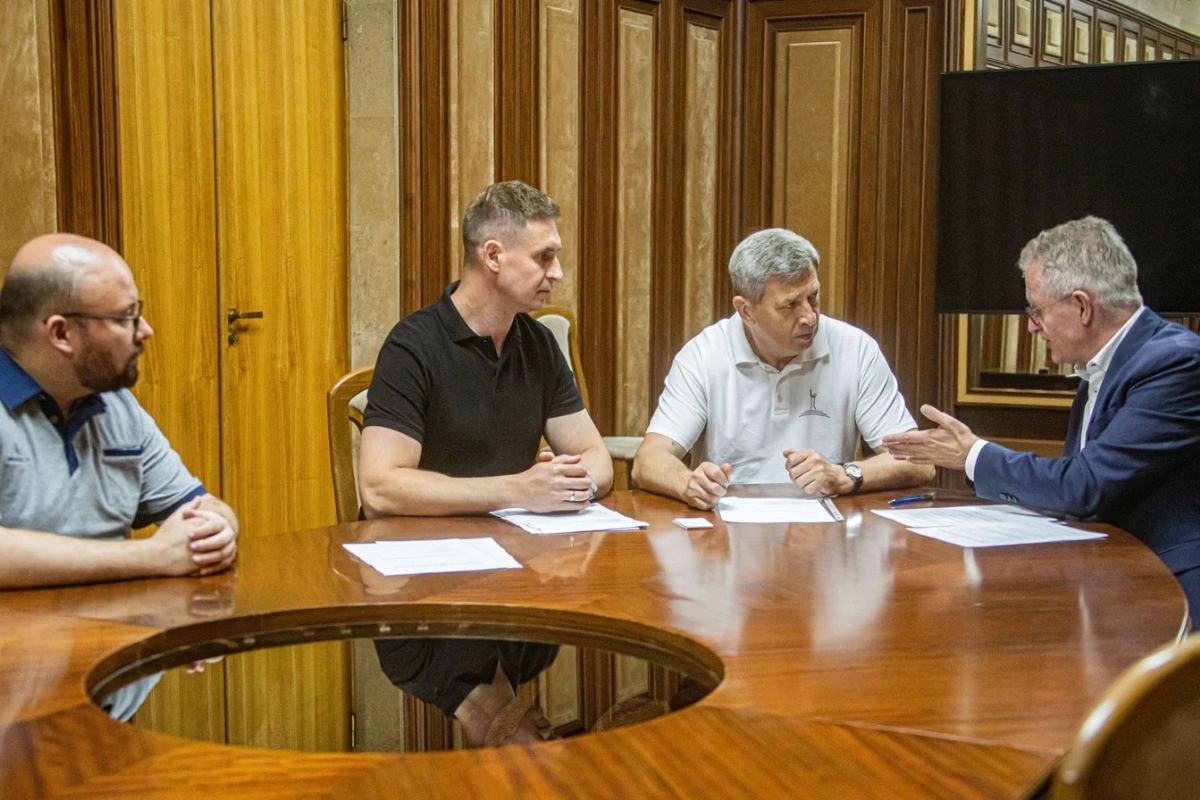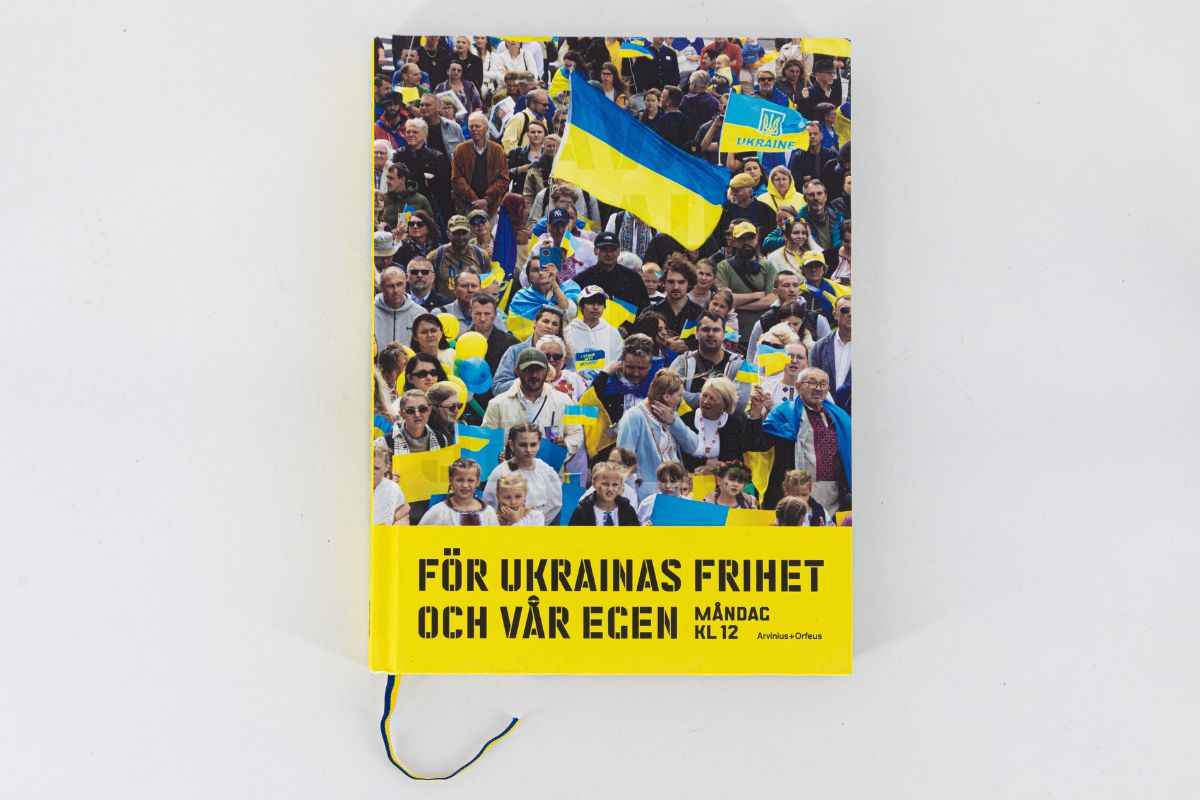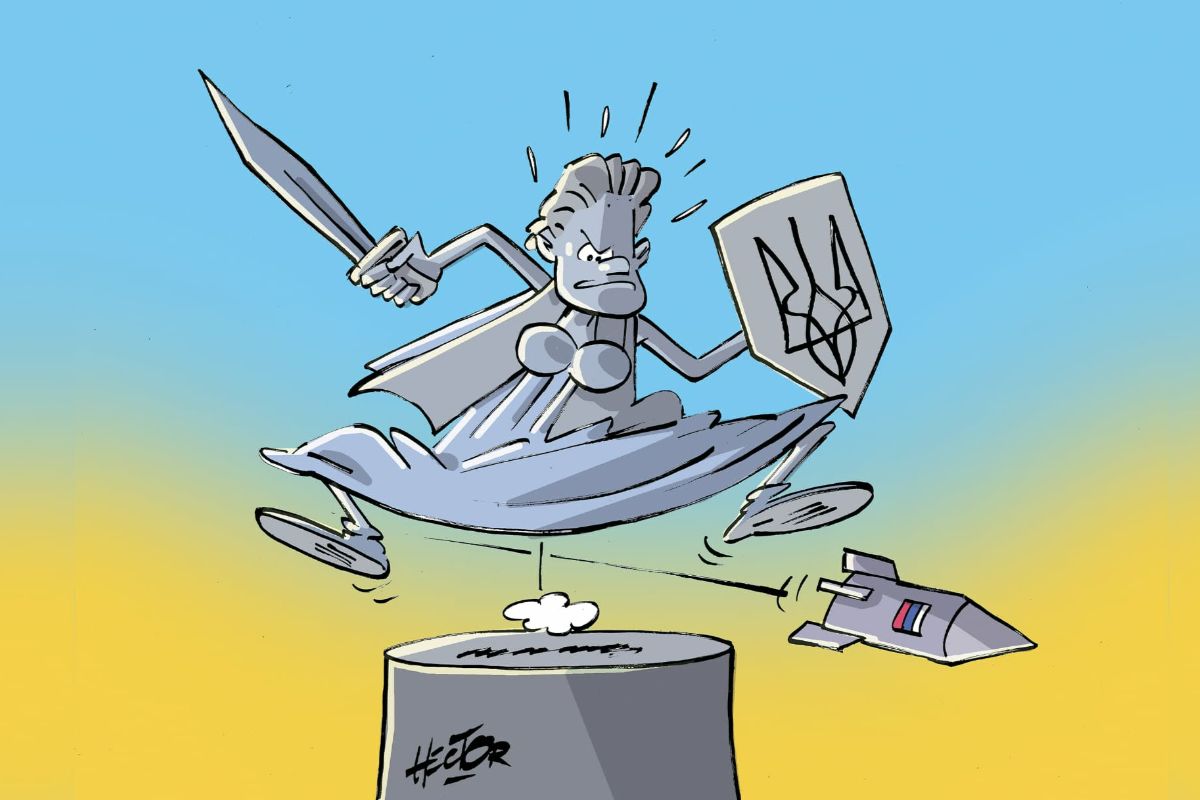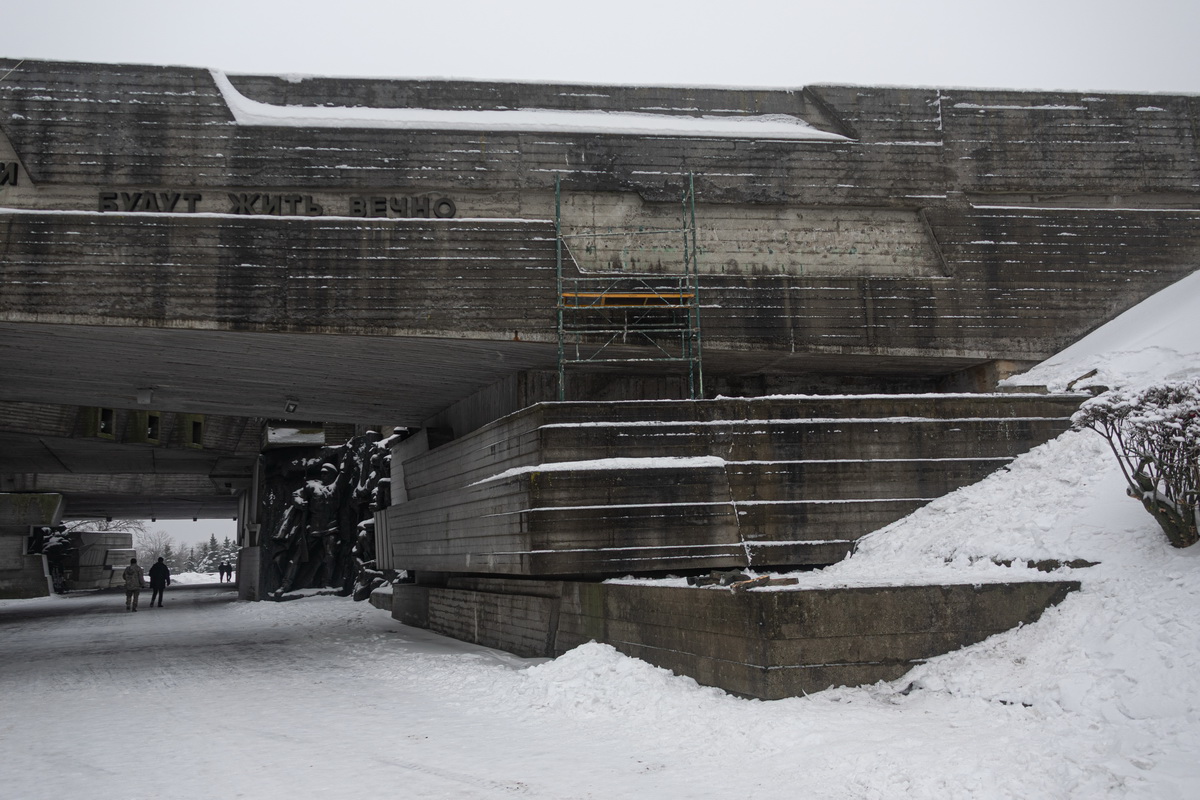On July 5, a delegation from the Embassy of Germany in Ukraine, headed by Deputy Ambassador Maximilian Rasch, visited the Museum. The diplomats took part in a curatorial tour of the exhibition “Memory. Dialogues”, organized by the War Museum in cooperation with the Berlin-Karlshorst Museum with the support of the Embassy of Germany in Ukraine. The exhibition was presented by the Museum’s Director General, Yurii Savchuk, and the Deputy General Director, co-curator of the project, Yurii Horpynych.
After the tour, a panel discussion was held with artists from Germany and Ukraine – Eva Neidlinger, Jenny Alten, and Polina Kuznetsova – whose family stories formed the basis of the exhibition, along with the Director of the Goethe-Institut in Ukraine, Fabian Mültaler. The discussion focused on preserving the memory of the Second World War, rethinking historical events, and fostering cultural dialogue between the German and Ukrainian peoples. The artist talk was moderated by Museum researcher Roman Kabachii.
In his opening remarks, Museum Director Yurii Savchuk emphasized the special significance of the Embassy of Germany’s support during this historic moment, when the Ukrainian nation, state, and society are heroically fighting for the values of democracy and freedom in front of the entire world.
Hansjörg Deng, Second Secretary of the Embassy of Germany in Ukraine, stressed that the exhibition “Memory. Dialogues” is not only a historical and artistic project but also a powerful political and social statement at a time when russia is attacking historical memory, rewriting history, and attempting to portray victims as perpetrators.
Goethe-Institut Director Fabian Mültaler pointed to the challenges posed by russia’s spread of pseudo-historical narratives around the world. Among these is the imposition, within German society, of a sense of guilt toward russia, despite the fact that it was Ukraine’s territory that was fully occupied during the Second World War.
German artist Jenny Alten, the author of one of the exhibition’s installations, spoke about the difficult research into her own family history. Part of the display includes letters from her grandfather, a German soldier, to his wife. He wrote them while in Ukraine as part of the German army, but never sent them – instead, he placed them in a Swiss bank for safekeeping. Jenny never knew her grandfather and is now working with her father to decipher these letters.
Artist Polina Kuznetsova from Kharkiv admitted that, for a long time, her understanding of the war was shaped by Soviet and post-Soviet narratives. The family story now presented in the exhibition – through her grandmother’s memories – had seemed more like a frightening fairy tale than reality. The start of the russian invasion forced her to reimagine the trials her grandmother endured as a child in wartime Ukraine during the Second World War.
Eva Neidlinger shared that she never personally knew her cousin’s great-grandfather – a Wehrmacht soldier whose diary and photographs from Ukraine are now on display. The discovery of these artifacts revealed an entirely different, personalized story of the war. Eva noted that the present generation is the third since the end of the last global conflict. And although the experiences of the Ukrainian and German peoples were different, shared values make dialogue possible.
The War Museum sincerely thanks the Embassy of Germany in Ukraine for supporting the “Memory. Dialogues” project, Eva Neidlinger, Jenny Alten, and Polina Kuznetsova for their cooperation and contribution to strengthening cultural ties between Ukraine and Germany, and all the guests and participants for their attention to the work of our institution.
